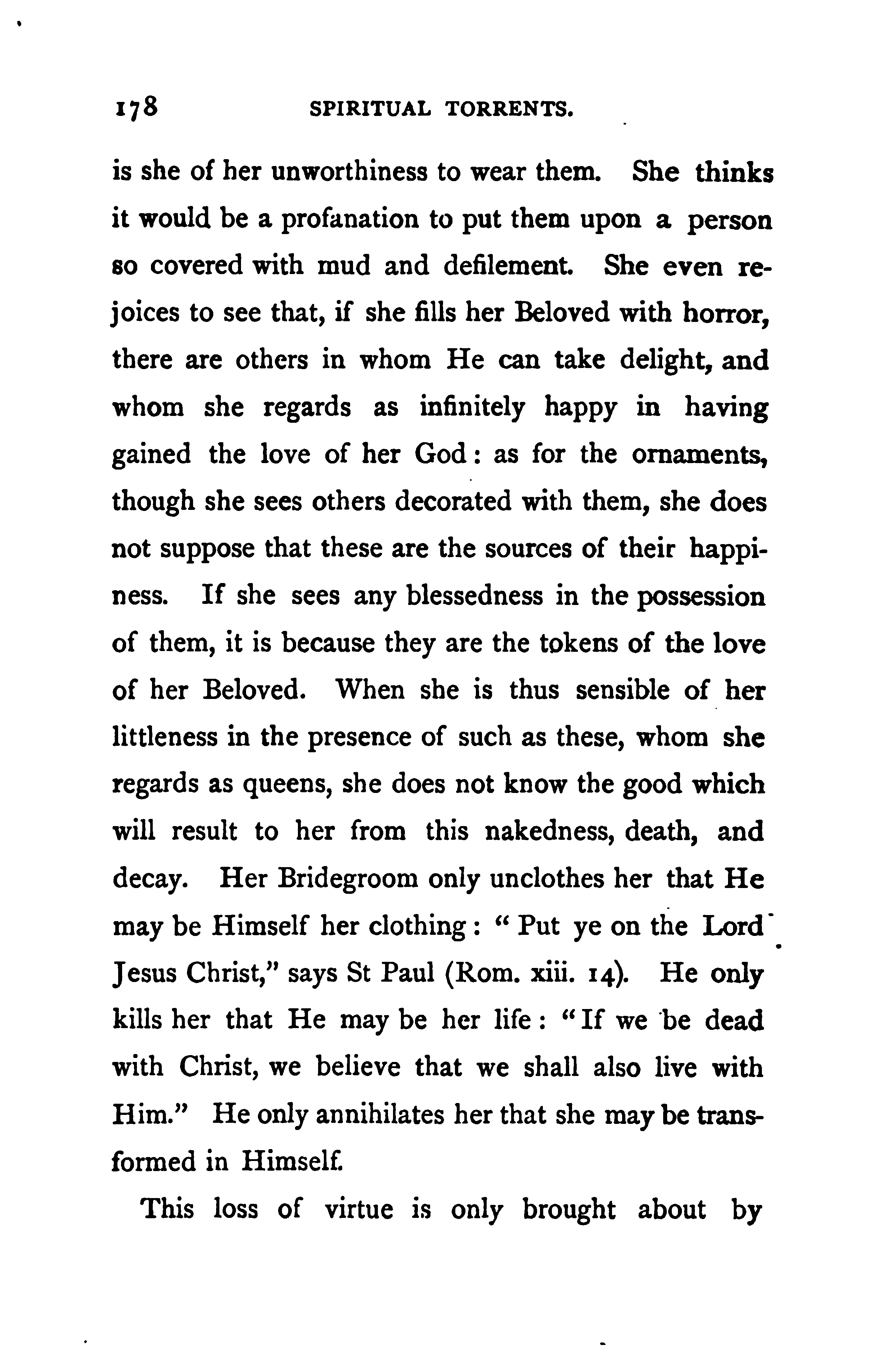is
she
of
her
unworthiness
to
wear
them.
She
thinks
it
would
be
a
profanation
to
put
them
upon
a
person
80
covered
with
mud
and
defilement
She
even
re-joices
to
see
that,
if
she
fills
her
Beloved
with
horror,
there
are
others
in
whom
He
can
take
delight,
and
whom
she
regards
as
infinitely
happy
in
having
gained
the
love
of
her
God
:
as
for
the
ornaments,
though
she
sees
others
decorated
with
them,
she
does
not
suppose
that
these
are
the
sources
of
their
happi-ness.
If
she
sees
any
blessedness
in
the
possession
of
them,
it
is
because
they
are
the
tokens
of
the
love
of
her
Beloved.
When
she
is
thus
sensible
of
her
littleness
in
the
presence
of
such
as
these,
whom
she
regards
as
queens,
she
does
not
know
the
good
which
will
result
to
her
from
this
nakedness,
death,
and
decay.
Her
Bridegroom
only
unclothes
her
that
He
may
be
Himself
her
clothing
:
"
Put
ye
on
the
Lord"
«
Jesus
Christ,"
says
St
Paul
(Rom.
xiii.
14).
He
only
kills
her
that
He
may
be
her
life
:
"
If
we
be
dead
with
Christ,
we
believe
that
we
shall
also
live
with
Him."
He
only
annihilates
her
that
she
may
be
trans-formed
in
Himself.
This
loss
of
virtue
is
only
brought
about
by

